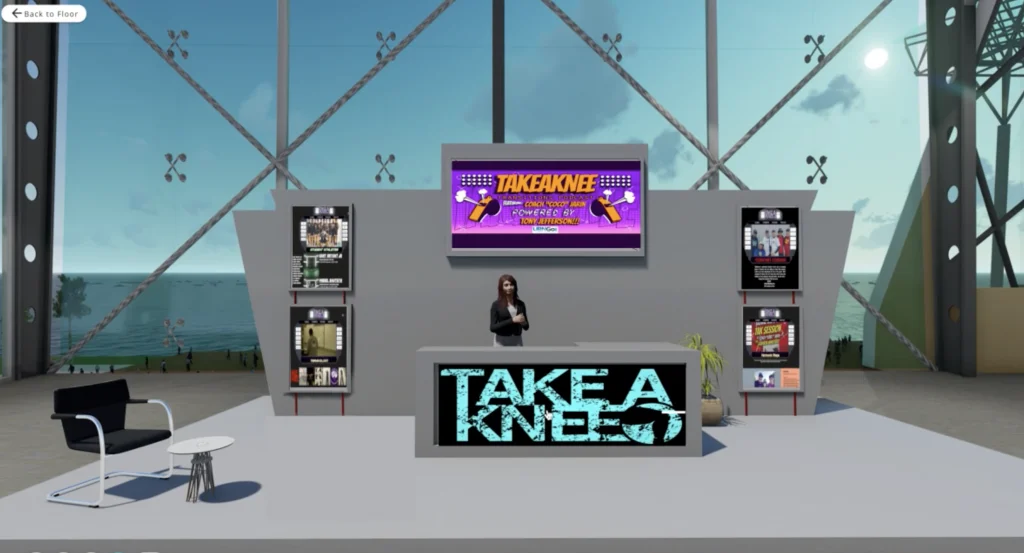From virtual events to hybrid conferences, the event industry is evolving rapidly. Virtual events have taken center stage as businesses see the ROI and wide range of audiences they can attract through virtual events. As companies start to partner with virtual platforms, certain virtual event platform features are more important than others.
“What businesses need to keep in mind is that not every event is the same and not every virtual event platform is the same. Businesses that are looking to add a virtual element to their event need to find the right virtual event platform that will deliver all their needs and help them reach their objectives from the event,” says Stephen Handisides, V-Unite CEO.So, what are some of the most important virtual event platform features for your virtual event?
Top 10 Virtual Event Platform Features To Look Out For
Here are 10 of the top virtual event platform features to consider before choosing your virtual event platform.
1. Gamification
People love a little competition. Ensuring a virtual event platform has
gamification features
is an excellent way to ensure your audience’s engagement during the event. With attendees constantly checking the leaderboard, participating in polls, downloading content and participating in other opportunities, you can definitely ensure audience participation at your event. Additionally, gamification also allows for attendees to interact and compete with one another which further enhances networking opportunities among peers.
2. Automation
Automation will only help make your life easier. It’s important to have a virtual event platform where most things are automated such as uploading speaker data, event pages, and other processes. Not only will this help to streamline the virtual event planning and execution process but it will also bring the overall costs down.
3. Social media integration
This is probably one of the most important features a virtual event platform needs to have. You will want your attendees to post and share your event on their pages before, after and during the event. Having this integration for easy sharing during the event is especially important so they can share the event’s content in real time and generate more buzz around your event and business. It’s important to make sure this platform accommodates most social media platforms for all attendees.
4. Networking opportunities
One of the main reasons for people to attend a big conference or event is the networking opportunities that come with it. Therefore, the virtual event platform must have as many networking opportunities as possible. These could include breakout rooms, networking sessions, chats and any other opportunities to facilitate a conversation between attendees during the event.
5. Virtual exhibition booths
Virtual booths allow sponsors, exhibitors and other participants to connect and engage with attendees. Attendees can engage with relevant booths and have the opportunity to take away content to research after the event is over. Virtual booths are a great way to share content and increase exposure for a business.
6. Repurposing and sharing
You will want to be able to re share your content. Once your virtual event is over, you should be able to save content to be used in the future or on-demand viewing. This is an extremely important advantage as you can continue to generate buzz and intrigue more of your audience to want to join your next event.
7. Live streaming
If you’re planning to have speakers and looking to broadcast videos and other sessions, a live streaming option is a must. Most virtual events have live streaming options for their audience to view content in real time. This is extremely valuable for engagement and networking during Q/A sessions after guest speakers and other hosts have presented.
8. Customization
When it comes to hosting your event, you want to make sure you can design your event with your own branding. You should also be able to personalize the event with your designs. This means that the virtual event platform should allow for white labeling to make your event your own. A virtual event should have your audience feeling immersed in the experience you provide for them, therefore you should be able to customize it to your design potential.
9. Customer support
Having customer support during a virtual event is a must. Remember, not everyone is technologically savvy and some attendees may need some guidance during the event. Additionally, having customer support will enable you to fix any problems that may arise and ensure a smooth event. This is also a great way to gain additional feedback for improvement.
10. Reporting and analytics
The reporting and analytics feature helps you understand where your audience was the most engaged,what you did right and what you could improve on in the future. It could also be a good idea to see if the feature allows for integrating analytics platforms like Google Analytics.
The bottom line is to find the virtual event platform that works for your business. It’s important to take your time when looking at your options. Virtual events are here to stay, and partnering with the right virtual event software is key to successful experiences.

